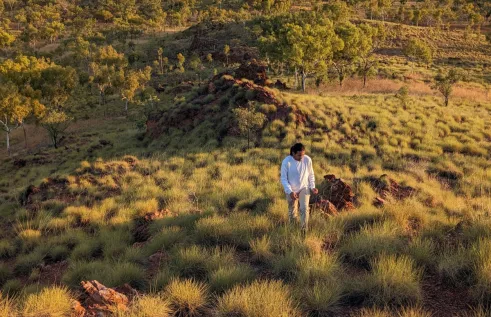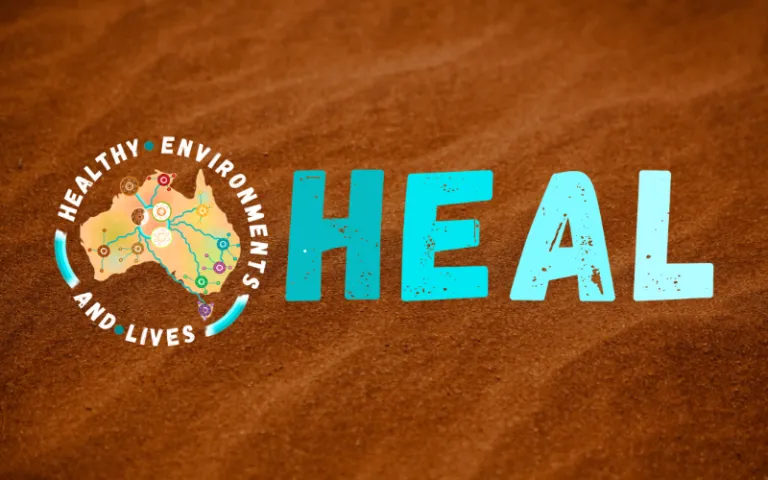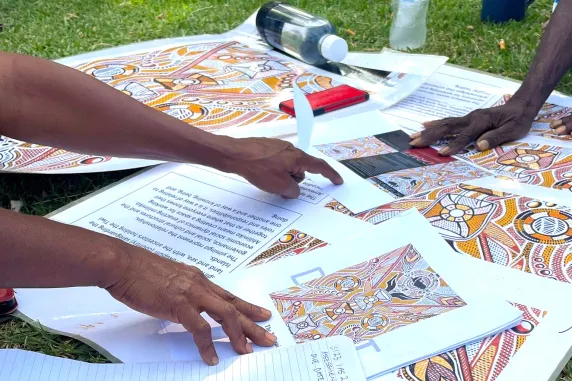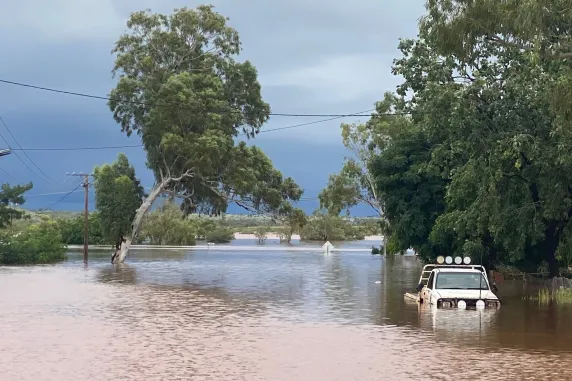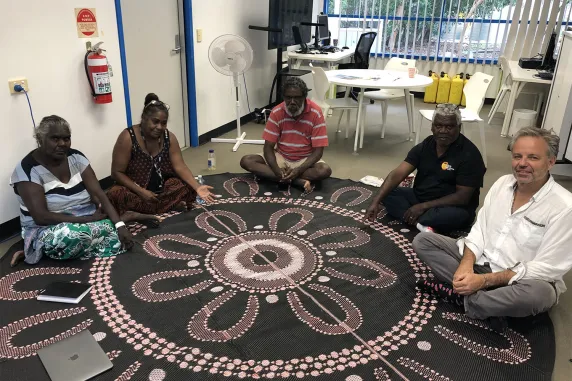Ready to start your career in Research?
We are looking for students to join our researchers on their current projects. Develop your research skills with our knowledgeable teams, recognised for their innovative methodologies, commitment to co-design and positive research outcomes and community impact.
Finding a project or supervisor
If you are interested in joining a project or have any questions, please email the lead supervisor below.
If you don’t see the exact project for you but are interested in a particular topic within a social research context, please get in touch with a supervising NI researcher with expertise in that topic:
Available Supervisors
- (Digital Humanities) Professor Jennifer Deger
- (Demography, Economy & Populations) Associate Professor Andrew Taylor
- (Economics, Tourism & Workforce Development) Associate Professor Pascal Tremblay
- (Education, Evaluation & Ethnography) Professor Helen Verran
- (Education, Evaluation & Yolŋu Language) Professor Michael Christie
- (Environment & Indigenous Governance) Senior Research Fellow Jackie Gould (Currently not taking students)
- (Environment, Sustainability & Climate) Associate Professor Kerstin Zander
- (Ethical Sustainability, Gender & Arts) Professor Kim Humphrey
- (Humanitarian Response & Disaster Management) Associate Professor Akhilesh Surjan
- (Indigenous Education & Equity) Senior Lecturer & Researcher Tracy Woodroffe
- (Indigenous Health Communications & Early Childhood) Associate Professor Anne Lowell
- (Indigenous Knowledges & Sustainability) Associate Professor Linda Ford
- (Language Revitalisation & Computational Linguistics) Professor Steven Bird
- (Indigenous Co-design, Evaluation & Environment) Senior Research Fellow Michaela Spencer
- (Regional Workforce, Development & Education) Professor Ruth Wallace
- (Regional Sustainability & Waste Management) Dr Deepika Mathur
Available projects with a scholarship
We have different scholarships to support and assess social well-being and economic and systemic issues within the Northern Territory. We want to attract high-calibre applicants to meaningful projects of local relevance, all undertaken in collaboration with government or community partners.
CDU-NTG scholarships (currently not available)
Work in collaboration with an NT Government partner department on a project of local relevance. These projects include a 60-day internship (full-time or part-time) with the partner organisation during the degree. The scholarship stipend is provided to assist with general living costs:
- AU$32,192 (2024 rate) per annum tax-free for full-time students, paid in fortnightly instalments.
- AU$16,096 (2024 rate) per annum, taxable, for part-time students, paid in fortnightly instalments.
First Nations Australian Applicants: A First Nations top-up scholarship is available besides the above. This top-up stipend is $10,000 annually if enrolled full-time or $5,000 annually for part-time candidates, paid in fortnightly instalments.
CDU Domestic Excellence scholarships (CDUDES)
The aim of the CDU Outstanding Researcher Program is to attract high-performance HDR students to the Northern Territory for a unique and rewarding research career.
The scholarship provides full-time students AU$40,000 (2023 rate) per annum for three years ($120,000) + Domestic RTP Fee offset.
Research Training Program scholarships
CDU offers Research Training Program (RTP) scholarships associated with established projects or research teams (listed below) to support high-quality domestic research higher degree candidates awarded on academic merit, relevant research experience and/or potential. Candidates who receive an RTP Stipend scholarship will automatically receive an RTP Fee Offset for the tuition fees.
- AU $34,190 (2025 rate) per annum tax-free for full-time students, paid in fortnightly instalments.
- AU $17,095 (2025 rate) per annum, taxable, for part-time students, paid in fortnightly instalments.
2 x PhD Scholarships
NHMRC Healthy Environments and Lives (HEAL) - National
Research Network
Supervisor: Professor Payi Linda Ford
Stipend: $Up to $44,190 for a First Nations PhD Candidate, $34,190 otherwise
Timeframe: 3 years full-time appointment
Location: CDU Casuarina Campus
About: We can offer a competitive scholarship package with a professional salary for someone who can bring experience in the sector to this role. The candidate could consider a range of on-ground projects, and all elements of our work focus on delivering on the research priorities identified by our HEAL partner organisations. The overarching theme across this work is to support Indigenous people of the NT and their governance arrangements, which recognise Indigenous leadership, knowledge, authority and decision-making.
If you are interested in this opportunity, please get in touch with Professor Linda Payi Ford, Senior Research Fellow, Northern Institute, CDU, at linda.ford@cdu.edu.au or 08 8946 7203.
Exploring the potential of short-form qualifications
An inquiry into the design and delivery of new ‘dual academy’ qualifications in NT Aboriginal contexts
Team:GroundUp.
Supervisor: Michaela Spencer
Stipend: RTP $32,192pa + top-up.
Timeframe: 3 years full-time appointment
Location: CDU Casuarina Campus
About: Aboriginal elders and other knowledge authorities have always practised their own forms of training and qualification, raising skilled new generations of young people under appropriate authority.
In recent years, new kinds of short-form qualifications, such as micro-credentials and digital badges, have created new opportunities for universities and Aboriginal knowledge authorities to work together in designing forms of teaching, learning and credentialisation that are suitable for Aboriginal learners, which connect with and maintain both Aboriginal and other knowledge traditions, and which activate new opportunities for business and enterprise development.
The purpose of this PhD will be to work collaboratively with relevant stakeholders (e.g. Aboriginal knowledge authorities, Aboriginal organisations and government and university staff) to explore the potential of new forms of micro-qualification to recognise place-based teaching and learning under Aboriginal authority. This would include a review of existing offerings, and inquiry into the potential design and delivery of new forms of credentials and qualification processes relevant in NT contexts.
This project will include advisory input from NTG Dept of Education and Training, and Aboriginal stakeholder groups already engaged in this area (e.g. ranger organisations and Bush universities).
The candidate will be expected to have a commitment to collaborative community-based research and, ideally, be able to undertake remote fieldwork. The initial design of the project may include the formalisation of an Indigenous supervisory group and/or stakeholder advisory group, working in collaboration with CDU supervisors.
Apply: For further enquiries or to send in your EOI, please contact Michaela Spencer on 08 8946 7251 or email michaela.spencer@cdu.edu.au.
AI communications for First Nations communities
Exploring how Artificial Intelligence (AI) can participate in safe communications about ‘living with weather’ for First Nations communities in northern Australia
Team: Top End Language Lab
Supervisors: Nic Bidwell, Steven Bird & Helen Verran.
Stipend: RTP $34,190pa + top-up.
Timeframe: 3 years full-time appointment
Location: Darwin and remote communities in the NT
About: This is an ARC-funded project, First Nations AI: Country, Climate, Communication, at Charles Darwin University. Together, our team of Indigenous and Western scholars aims to develop a systematic account of Artificial Intelligence (AI) and its possibilities in climate change communication in remote First Nations communities in northern Australia. Working under Indigenous governance, we are establishing spaces for Indigenous landowners and scientists to come together to probe diverse AI techniques for making sense of climate predictions and risks. We will build the capacity of Indigenous people to conceive and design AI, accounting for divergent languages and knowledge systems. This is expected to lead to more effective and trustworthy communications about extreme weather and climate change, improving the preparedness and responses of remote First Nations communities.
Our research proceeds under First Nations’ governance facilitated by Ian Gumbula.
Your project will explore if and how AI can 'participate' in safe communications about ‘living with weather’, expressed by members of remote First Nations communities in northern Australia. Your PhD candidature will be located in CDU's Faculty of Science and Technology. However, you can expect strong support from the Northern Institute in the Faculty of Arts and Society, and you will be expected to connect the work in both faculties. View project details.
Apply: For further enquiries or to send in your EOI, please contact Nicola Bidwell at nicola.bidwell@cdu.edu.au or 0434460715.
Keeping Indigenous Languages Strong in Northern Australia
Team:Top End Language Lab
Supervisors: Steven Bird (contact), Bhanu Bhatia, Michaela Spencer, Michael Christie, James Bednall.
Stipend: $40k pa + Domestic RTP Fee offset.
Location: CDU Casuarina Campus + 3-month internship at a Language Centre & remote research in NT Aboriginal communities.
About: This project is associated with an ARC Discovery Project, 'Investing in Aboriginal Languages,' which explores Aboriginal Language Centres as sites of cultural investment and exchange where Aboriginal language owners and users, researchers, and members of government and non-government agencies are participants. Diverse language and culture practices are at work in and around doing the business of Language Centres: work to fulfil obligations to kin and country that are at least partially invisible to outsiders, recognition of who are experts and the nature of different expertise, language documentation and preservation, work under contract, and more. There are diverse forms of accountability to differently situated participants, various forms of investment, and different values, agendas, aspirations, priorities and timelines. How do we understand, make visible and support healthy investments and generative exchanges? The PhD student will undertake field research in one or more Top End Language Centres as negotiated by supervisors, Indigenous Language workers and owners, and Language Centre management staff. Depending on the disciplinary background of the student, the project could involve ethnographic and/ or linguistic work with images and words in quantitative-qualitative multi- and transdisciplinary research.
Apply: Send your EOI to Professor Steven Bird at steven.bird@cdu.edu.au or call 08 8946 6153 if you have any questions.
